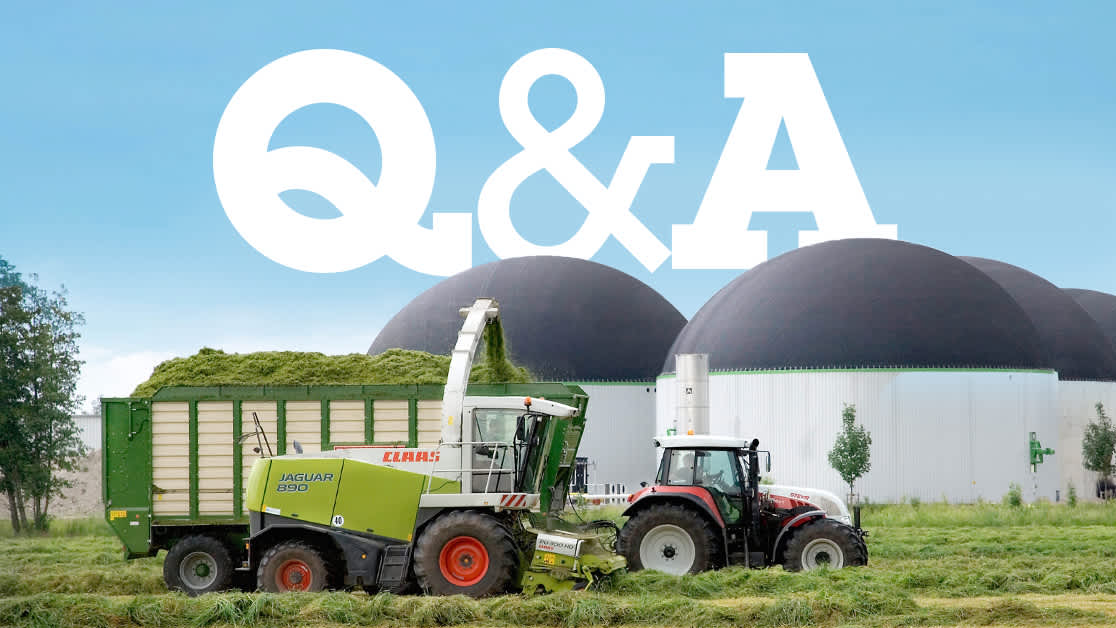Automation that replaces the need for work can be a good thing, but only if it is used to ease the overall burden instead of making a bunch of people unemployed so that the capitalists who own the company can increase their profits. The idea of machines doing all the work sounds great, but if that means that the handful of people who own the machines have a great quality of life and everyone else suffers then that is not a good trade-off.
- 5 Posts
- 26 Comments

 2·1 year ago
2·1 year agoMost people don’t vote
About 70% of the electorate vote nowadays, it has varied higher or lower but never been as low as 50% of eligible voters to even say “half of eligible people don’t vote” let alone “most”
https://researchbriefings.files.parliament.uk/documents/CBP-8060/CBP-8060.pdf
So assuming you have say 20 old people on your fictional bus, even assuming that all of your voter info is correct and everyone is on the register, the chances of all of them being able to cast a second vote without any of them being caught are billions to one.
The idea that millions of people will risk a significant chance of a lengthy prison sentence for their individually tiny extra votes is absurd when any actual attack on election integrity would not happen at the point of “turning up at the polling station and hoping for the best.”
Even if one in a million voters did try and get away with this - which again is a hugely inflated number from anything we get an indication of - if to do so you stop tens of thousands of people from being able to vote at all that still makes the election less democratic overall.

 2·1 year ago
2·1 year agoWhy would you need a passport if you aren’t leaving the country?
It’s a piece of paper you buy every ten years if you want to travel across national borders, it’s not like some intrinsic part of your being.

 3·1 year ago
3·1 year agoIt is a very good book. I have some more by the same author on my shelf but haven’t got to them yet.
Fossil Capital: The Rise of Steam Power and the Roots of Global Warming is a history of industrial use of fossil fuels; in particular I believe it discusses how fossil fuels became so prevalent because they are a method of power generation which can be privatised more easily than things like water power.
I also have White Skin, Black Fuel: On the Dangers of Fossil Fascism by Malm and the Zetkin Collective but I don’t know much about that one yet, I mostly picked it up because of the Black Skin, White Masks reference in the title.

 1·1 year ago
1·1 year agoHDK is the record label, that’s just a playlist someone made of a few other releases from that label.
As far as I know it’s bandcamp only. You can listen to it free on there though, although it does normally ask if you want to buy the album after you’ve listened a couple of times.

 7·1 year ago
7·1 year agoWhile stuff like Tomb Raider is the quintessential example, for a five year old you would probably be better with something more colourful and fun, even if you are the one playing it.
With that in mind my first thought was A Hat in Time although I’ve not played it through to verify end to end appropriateness.
You could also try Mirror’s Edge because bright colours and dynamic movement, I don’t remember it being that violent but maybe on second thoughts consider the safety aspect of introducing a child to the concept of jumping between buildings and maybe I’m talking myself out of this.
Celeste is colourful and fun and honestly at that age I don’t know that she would pick up that much on the heavier aspects of the story which are allegories for anxiety/depression/gender dysphoria. A five year old is basically going to see it as a story with an evil twin I think.
I haven’t played Child of Light but that might be appropriate?
The main character in Crypt of the Necrodancer is a girl called Cadence, although that is one you would really have to enjoy to make it worth it imo. I’m mostly thinking rhythm and bright colours are child friendly again to be honest, but you still have to play what is basically a roguelike mixed with a rhythm game and if that’s not your jam it will be a waste of money.
You can always play a game with selectable skins too, like Spelunky 2 has a few characters you could pick between which all play the same but has a variety of designs you can play as.
I don’t normally plan my reading much ahead of time but August is an exception on a few counts.
Firstly, Whalefall by Daniel Kraus comes out on August 8th. It’s such a goofy idea for a story (think Jonah and the Whale meets The Martian) and I have been so pumped, I’ve been talking people’s ear off about it for months. It’s like scientifically accurate Pinocchio.
Secondly, one of the bookclub picks for the Discord server affiliated with !bookclub@lemmy.world is The Left Hand of Darkness by Ursula K LeGuin
And then it’s Tropeical Readathon (a semiannual reading challenge thing) again so I have a couple dozen books picked out to cover that, but the only other sci-fi one apart from the above is Under This Forgetful Sky by Lauren Yero.
I made a kind of “if you like PHM you might like these other books” rec chart thing when I first read PHM; if you’ve finished reading it you might enjoy some of these (although it does mention a few key elements of the book so if you’re going in completely blind and aren’t far in yet then don’t look at this yet).

 3·1 year ago
3·1 year agoThis mindset is why a lot of Blairite Labour policy is “be slightly less right wing than the Tories; the policies might suck but as long as everyone left of Thatcher and Farage feels we’re the lesser evil we don’t need to actually try and be good.” Not having anyone representing the left on the national stage is just going to result in more rightwards drift. I’ve commented elsewhere in this thread on not wanting to split the vote too much between dozens of tiny splinter parties, but also voting for Labour in their current state builds complacency about the voters they think they’ve banked because they used to stand for something, and just leads them to chase more of the Tory vote.

 3·1 year ago
3·1 year agodeleted by creator

 10·1 year ago
10·1 year agoThe strongest centre left candidates at the moment are the Greens. As far as electoralism goes, it would be better to stand behind a party that actually has a membership than split further into parties which frankly look the same as countless other “like the left flank of Labour but better” parties.
At least something like the Northern Independence Party could raise the priority of the North. I’m not sure what this offers that, say, the Breakthrough Party doesn’t apart from further vote splitting.
Feels like it will offer a similar level of political success and distinction as when you are trying to look up CPB vs CPB-ML vs CPGB-ML vs NCP vs RCPB-ML vs… except with everyone having platitudinal tech marketing guru’s branding like Transform, Change, Breakthrough etc.

 3·1 year ago
3·1 year agoReading & Writing
Video Games
Comics
Board Games / Table top games

 2·1 year ago
2·1 year agoThe Professor Elemental Justice League looking one is funny and the Elijah Nang is hella comfy looking, but my favourite here is the Scartoon cover. The art style looked familiar but I don’t know David Mancini (https://www.instagram.com/dart_works/) it just has that slightly like Michael DeForge style energy.
Here are a few more, although I only know the Larry June one as a record
I don’t know that that’s true, there can be other cultural reasons.
In Hindu-based cultures you wouldn’t eat cow, as in largely Muslim ones you wouldn’t eat pork.
Eating horse is common in a lot of countries despite falling into your “useful enough not to kill” category. Sheep are useful for wool production but people still eat lamb.
Rat is easy to domesticate and they are frankly useless at drawing a plough but eating them is still taboo in many places. A couple of billion people eat insects daily, but there are still many other countries where it is very rare to eat them at all despite the ease of farming.

 69·1 year ago
69·1 year agoIt’s a machine learning chat bot, not a calculator, and especially not “AI.”
Its primary focus is trying to look like something a human might say. It isn’t trying to actually learn maths at all. This is like complaining that your satnav has no grasp of the cinematic impact of Alfred Hitchcock.
It doesn’t need to understand the question, or give an accurate answer, it just needs to say a sentence that sounds like a human might say it.

 3·1 year ago
3·1 year agoThe impacts of the environmental damage are not necessarily worse than the environmental damage from not sinking superyachts in the long term, if it becomes a common enough threat that rich people no longer feel secure in owning them.
The concern with anything too destructive is with the property and safety of workers on board imo, not the ships themselves.
I’d recommend Andreas Malm’s book How to Blow Up a Pipeline if you want to hear more about the reasoning for this sort of thing.

 6·1 year ago
6·1 year agoScientists can just make stuff up, but in this case Paul’s complaint appears to be more to do with the article than any underlying research as he is trying to draw information that the article doesn’t pretend to intend to provide.
A lot of the problems with publicly visible scientific research are to do with media communication and the way that journalists will interpret or spice up results in their coverage.
There are also problems with the incentive to publish surprising results more than confirmation of existing information, as well as with the incentives for research funding, and scientists can bring their own biases into research consciously or unconsciously.
For things like company sponsored research, it is not uncommon for multiple trials to be run and only the ones with positive results to be published. I’d recommend Ben Goldacre’s pop sci industry journalism books Bad Science or the even better sequel Bad Pharma for more discussion of this.
Then there are journals which function more like vanity press, with insufficient peer review processes and that just charge people to publish their papers.
But there are also scientists who just wholesale make things up, whether for obvious financial gain like Andrew Wakefield making up the autism from vaccines MMR scare because he had competing vaccines he wanted to sell, or just for easy prestige like Jonathan Pruitt just copy and pasting underlying data samples to boost trends.
It is not unthinkable for researchers to invent information, although my gut will always be to trust the researchers not the international megacorporation with an obvious financial incentive and the idea of suing researchers like this without substantial proof of fraud could have devastating effects on scientific research should J&J manage to push it through.







Unless you’re a raw milk TB-chaser type the milk you drink is probably processed too. Being processed doesn’t make something inherently worse, and “no nutritional value” is a daft claim. OK if you consume milk as your only source of protein or fat, you probably want to choose your milk substitute tailored to whichever the rest of your diet is deficient in, but better or worse for us is a fairly arbitrary concept.
Livestock for dairy production are unarguably bad for the planet though.